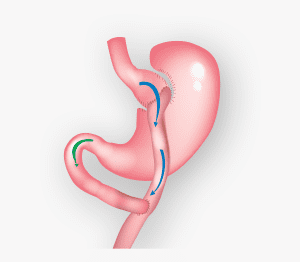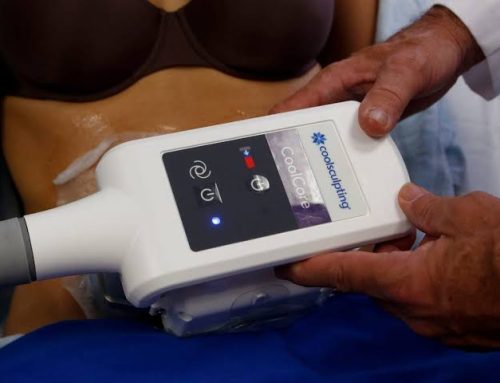Introduction
Gastric bypass surgery is a life-changing procedure that helps individuals struggling with obesity achieve substantial weight loss and improve their overall health. One of the most critical phases in the post-operative journey is the first month after gastric bypass, often referred to as the “honeymoon phase.” During this period, patients experience rapid weight loss, and it’s essential to understand the process, expectations, and outcomes during this crucial time.
What is a Gastric Bypass?
Gastric bypass surgery is a bariatric procedure that involves reducing the size of the stomach and rerouting the digestive system. The surgeon creates a small pouch from the stomach and attaches it directly to the small intestine. This effectively limits the amount of food the patient can consume and reduces calorie absorption, promoting weight loss. It is a powerful tool in helping individuals not only shed excess weight but also alleviate obesity-related health issues.

Why do you lose weight after Gastric Bypass Surgery?
Title: How Much Weight Do You Lose The First Month After Gastric Bypass?
Introduction
Gastric bypass surgery is a life-changing procedure that helps individuals struggling with obesity achieve substantial weight loss and improve their overall health. One of the most critical phases in the post-operative journey is the first month after gastric bypass, often referred to as the “honeymoon phase.” During this period, patients experience rapid weight loss, and it’s essential to understand the process, expectations, and outcomes during this crucial time.
What Is Gastric Bypass Surgery?
Gastric bypass surgery is a bariatric procedure that involves reducing the size of the stomach and rerouting the digestive system. The surgeon creates a small pouch from the stomach and attaches it directly to the small intestine. This effectively limits the amount of food the patient can consume and reduces calorie absorption, promoting weight loss. It is a powerful tool in helping individuals not only shed excess weight but also alleviate obesity-related health issues.
Why Do You Lose Weight After Gastric Bypass Surgery?
Gastric bypass surgery leads to weight loss through several mechanisms:
- Restriction: The procedure significantly reduces the size of the stomach, limiting the volume of food that can be consumed in one sitting. This restriction naturally leads to reduced calorie intake.
- Malabsorption: By bypassing a portion of the small intestine, fewer calories and nutrients are absorbed, contributing to additional weight loss.
- Hormonal Changes: Gastric bypass alters the hormones responsible for hunger and satiety, reducing food cravings and enhancing the feeling of fullness.
- Improved Dietary Choices: Patients are encouraged to adopt healthier eating habits and lifestyle changes, further promoting weight loss.

How much weight do you lose in the first months after Gastric Bypass?
The first month after gastric bypass surgery is often referred to as the “honeymoon phase” for a good reason. During this period, patients experience rapid and substantial weight loss. Several factors contribute to this quick initial weight loss:
- Liquid Diet: In the early post-operative period, patients are typically placed on a liquid diet to allow the digestive system to heal. This diet keeps calorie intake low and provides an emotional boost as patients witness the pounds shedding.
- Minimal Hunger: The hormonal changes resulting from the surgery reduce hunger and cravings, making it easier to adhere to the liquid diet and maintain a calorie deficit.
- High Motivation: Patients are motivated to see the weight coming off rapidly, which can further boost adherence to dietary guidelines and the recovery process.
On average, patients can expect to lose around 17% of their excess body weight during the first month after gastric bypass surgery. For example, if a patient is 5’8″ tall, weighs 250 pounds, and has an ideal weight of 150 pounds, they can anticipate losing approximately 17 pounds during this initial month.

Conclusion
The first month after gastric bypass surgery marks a crucial phase in the weight loss journey. Patients experience rapid and significant weight loss, largely due to dietary restrictions, reduced hunger, and high motivation. It’s important to note that these outcomes can vary from person to person, influenced by factors such as starting BMI, age, health conditions, and adherence to post-operative guidelines.
Gastric bypass surgery is a powerful tool that aids individuals in achieving substantial weight loss, but it requires commitment and determination to follow the program provided. While the “honeymoon phase” provides a promising start, long-term success depends on maintaining dietary and exercise routines, attending follow-up appointments, and staying connected with the support system provided by healthcare professionals.
For those considering gastric bypass surgery, consulting with experts and staying informed about the prospective weight loss options is essential. It’s a transformative journey that can lead to significant improvements in both physical health and overall well-being.
Disclaimer: The content on this blog is intended for general informational purposes only. It is not a substitute for professional medical advice, diagnosis, or treatment. Always consult qualified healthcare providers for personalized advice. Information regarding plastic surgery, dental treatment, hair transplant, and other medical procedures is educational and not a guarantee of results. We do not assume liability for actions taken based on blog content. Medical knowledge evolves; verify information and consult professionals. External links do not imply endorsement. By using this blog, you agree to these terms.










